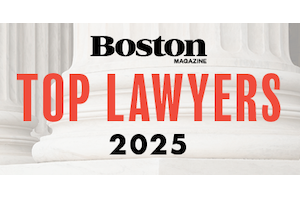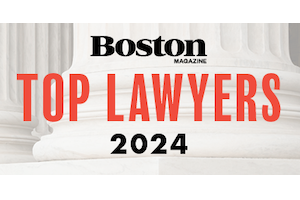Civil Rights
Boston Attorneys Protecting Individuals Whose Civil Rights Have Been Violated

Civil rights are the cornerstone of a free and equal society, ensuring that every person is protected against unlawful discrimination, abuse of authority, and violations of fundamental liberties. When those protections are disregarded, it can lead to devastating outcomes, like wrongful arrests, injuries caused by excessive force, unlawful discrimination, and violations of people’s liberty and dignity. Civil rights violations can occur in many contexts, from encounters with police officers to discrimination in housing, employment, or public accommodations. If your civil rights have been infringed upon, you have the right to pursue legal remedies in Massachusetts courts and before agencies designed to safeguard these liberties, and you should talk to an attorney at your earliest convenience. At Koufman Law Group, our Boston attorneys have extensive experience representing clients in civil rights claims, and we are committed to advocating for justice and accountability on behalf of individuals whose rights have been violated. Our office is located in Boston, and we proudly serve clients throughout Massachusetts.
Types of Civil Rights Claims
Civil rights claims in Massachusetts arise from a wide array of misconduct. Many involve abuses by law enforcement, such as false arrests, unlawful detentions, illegal searches and seizures, racial profiling, and the use of excessive or deadly force. Other civil rights claims arise out of cruel and unusual punishment, including mistreatment in correctional settings or denial of medical care. Beyond police misconduct, civil rights cases also encompass discrimination in employment, housing, education, and public accommodations. Massachusetts and federal law prohibit discrimination on the basis of race, gender, age, religion, sexual orientation, and disability, yet individuals continue to encounter bias in hiring, firing, promotions, rental decisions, and access to services. Harassment, intimidation, and retaliation against individuals for exercising their rights, such as reporting discrimination or speaking out against misconduct, also give rise to civil rights claims. Each of these violations undermines the promise of equal justice and may entitle victims to legal recourse.
Avenues for Pursuing Civil Rights Claims
Massachusetts victims of civil rights violations have multiple avenues to pursue justice, depending on the nature of the violation. Many discrimination claims must first be brought before the Massachusetts Commission Against Discrimination (MCAD), the state agency charged with enforcing anti-discrimination laws. MCAD investigates complaints, holds fact-finding conferences, and often requires parties to participate in mediation. The agency has the authority to determine whether probable cause exists and, in some cases, can issue binding remedies. Federal law provides similar forums through agencies such as the Equal Employment Opportunity Commission (EEOC), which works in parallel with MCAD on certain employment cases.
For claims not governed by administrative prerequisites, such as those involving police misconduct, unlawful searches, or violations of constitutional rights, individuals may proceed directly to state or federal court. Lawsuits filed under federal statutes such as 42 U.S.C. § 1983 allow victims to hold government officials and municipalities accountable for misconduct. Massachusetts courts likewise provide avenues for redress under state constitutional and statutory protections. Navigating these different paths requires careful attention to deadlines, procedural rules, and strategic choices about the forum most likely to achieve a favorable outcome.
Remedies for Civil Rights Violations
The remedies available in civil rights cases are designed to restore victims as fully as possible and to deter future misconduct. In discrimination cases before MCAD, the agency may award reinstatement to a lost job, back pay for lost wages, front pay for future losses, damages for emotional distress, and attorney’s fees. In housing or public accommodation cases, MCAD can order landlords, businesses, or institutions to cease discriminatory practices and compensate victims for harm suffered.
In court proceedings, remedies can be even broader. Plaintiffs may recover compensatory damages for financial losses, physical harm, and emotional suffering caused by the violation of their rights. In egregious cases, punitive damages may also be available to punish wrongdoers and deter similar misconduct. Courts may issue injunctive relief, requiring defendants to change policies, provide training, or implement safeguards to prevent future violations. In cases involving unlawful arrests, excessive force, or cruel treatment, damages may include medical expenses, lost income, and compensation for the lasting impact on a person’s liberty and dignity. Importantly, both MCAD and the courts can award attorney’s fees, ensuring that victims are not deterred from seeking justice due to financial barriers.
Speak to an Experienced Boston Civil Rights Attorney
The violation of civil rights can lead not only to financial losses but also to long-lasting damage to one’s reputation, liberty, and sense of security. Fortunately, Massachusetts law provides avenues to pursue justice through administrative complaints and through lawsuits in state and federal courts. If you believe your civil rights have been violated, you should consult with an attorney who can assess your claim, explain your legal options, and help you pursue the remedies you deserve. The experienced Boston civil rights lawyers at Koufman Law Group are dedicated to protecting individuals against injustice and are prepared to advocate vigorously on your behalf. Our office is located in Boston, and we represent clients in Boston and throughout Massachusetts. You can contact us to arrange a confidential consultation through our online form or by calling us at 617-423-2212.















